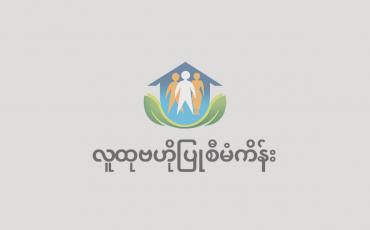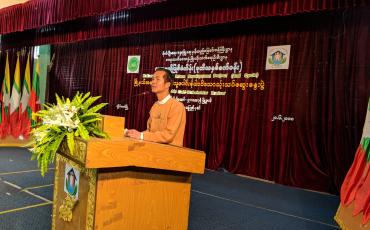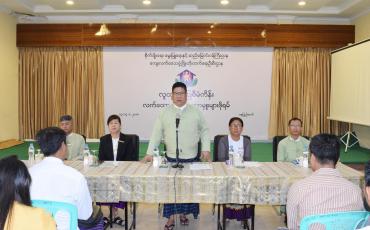
The Department of Rural Development (DRD) under the Ministry of Agriculture, Livestock and Irrigation (MOALI) is organizing “Townships Selection Consultation Meetings” at respective capitals of 13 regions across the country early this year, in January and February, to expand the National Community Driven Development Project (NCDDP) to 13 additional townships in the 13 Regions, apart from Nay Pyi Taw Union territory and Kayah State, of which all the townships have been covered by the NCDDP project implemented by DRD since 2013. The DRD has been implementing the NCDDP in 63 townships in 15 regions across the country with support from the World Bank and other Development Partners.
At the consultation meetings, respective regional, district and township officials from the DRD, local authority, members of Parliaments, representatives from the World Bank , donor governments or agencies, local civil society groups, development partners with existing projects in the region/state, community-based organizations, non-government organizations, partner organizations for rural development, ethnic groups present in the state/region, media and other concerned persons will be participated.
The additional townships for NCDDP development activities will be selected according to the Multidimensional Disadvantage Index (MDI) using census data at the township level released by the Ministry of Labour, Immigration and Population of Myanmar in 2014, and depending on the development support received from other sources.
Additional townships will be identified for inclusion in NCDDP based on a transparent and participatory selection process. Poverty rates are the primary criterion for selecting the participating townships. Additional criteria are: (i) the absence of external funding for similar activities; (ii) willingness and capability of the township authorities to implement the project; (iii) a minimum level of peace and stability in the township to allow for safe implementation and supervision of the project; and (iv) a minimum level of logistical access to and within the township.
After making remarks on the proposed townships according to the suggestions of the respective organizations, the potential impacts of the project, transportation and security matters, the respective regional governments will submit their suggestions to the MOALI, through which the plans will be submitted to the Economic Committee to be approved.
The NCCCP project has been implementing the development activities with financing support from the Government of Myanmar, the Governments of Italy and Japan, UK Department for International Development (DFID) and the World Bank since 2013.
The NCDDP project fund was amounted to a total of US dollars 549 million with the contribution of $ 41 million from the Myanmar government budget, an initial IDA grant of $80 million and 400 million IDA additional financing credit from the World Bank, $ 3 million grant and $ 22 million loan supports from the government of Italy, $ 3 million support from the UK Department for International Development (DFID).
With the remaining balance of the previous years’ project circles and additional US dollars 25 million support from the Japan Social Development Fund (JSDF), the NCDDP will expand its project activities to the additional selected 13 townships starting from the year 2020.
The objectives of the project are to enable poor rural communities to benefit from improved access to and use of basic infrastructure and services through a people-centered approach and to enhance the government’s capacity to respond promptly and effectively to an eligible crisis or emergency.
The NCDDP is working with communities and local authority to identify the prioritized needs of the local community, bolster their ownership, capacity and action to meet the needs of the most vulnerable; broaden participation for more inclusive decision making; and strengthen local capacity in designing the project plans, implementation and mechanisms for more responsive and accountable local governance.







